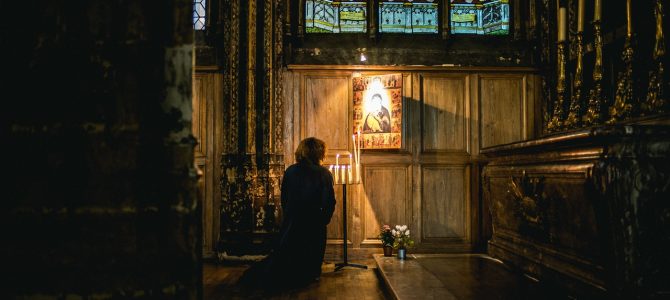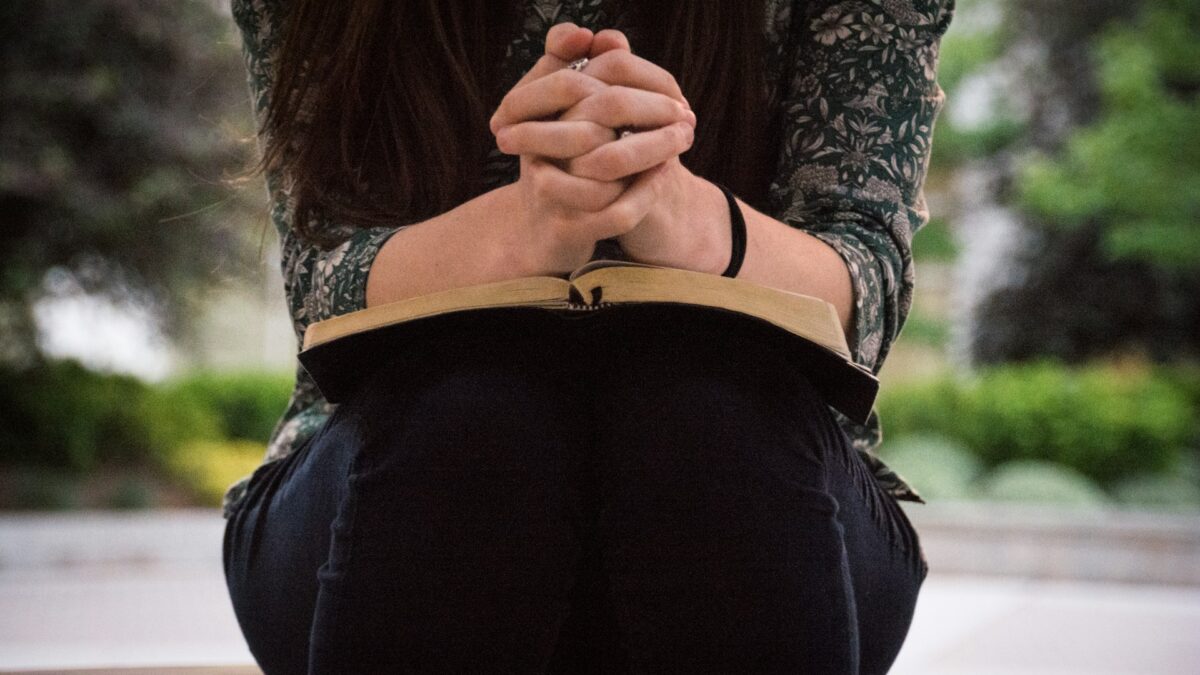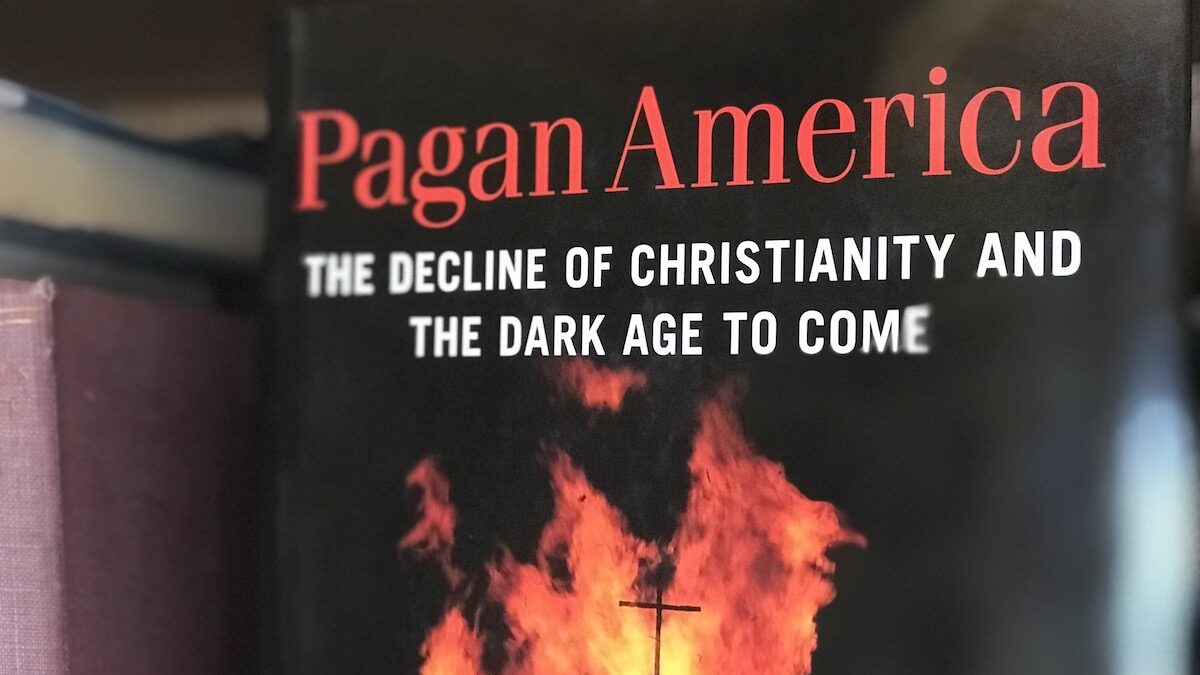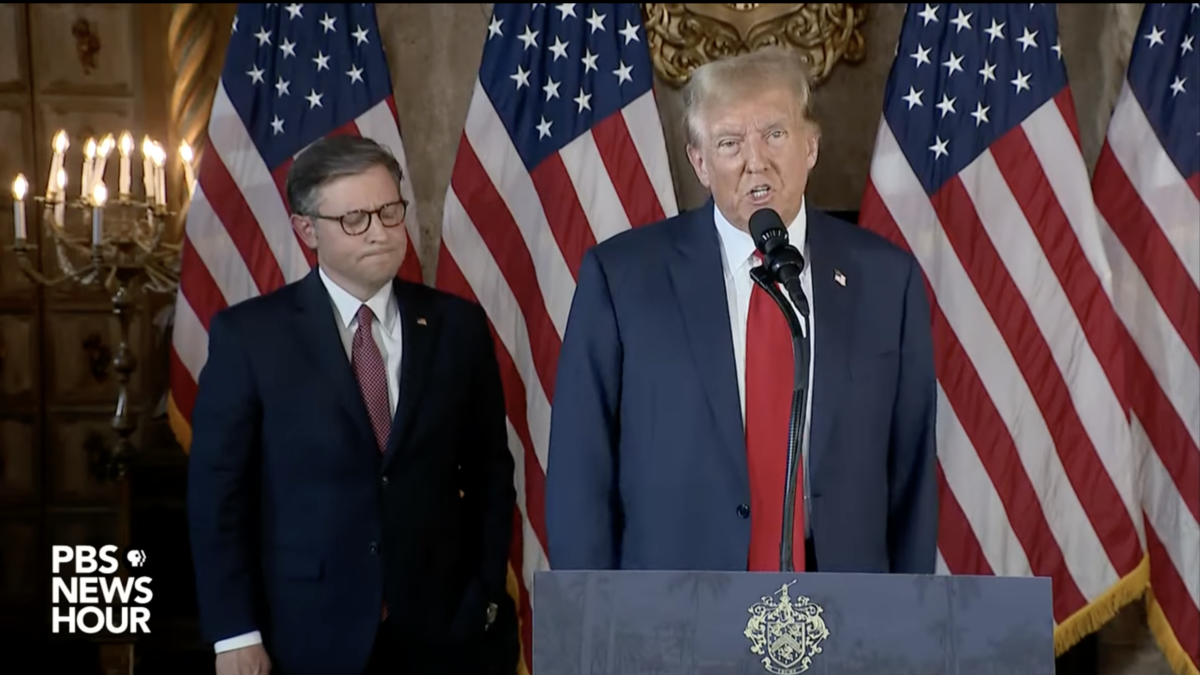
There’s always something to panic about on the Internet, but the days and weeks leading up to the election, my Facebook feed was so frenzied I wondered how anyone could make a clear-headed decision when he went to vote.
Typically, frenzy results in poor decision-making, and that fact was fully on display. I saw many people who believed in the same principles lash out at each other when they disagreed on how to apply those principles to voting. Many of my friends (and I) fall somewhere in the conservative / Catholic / Christian / pro-life arena, and the election being what it was, the feeling of being cornered was palpable.
As one friend put it, choosing between major-party candidates was like choosing between shooting yourself with a fully loaded revolver and playing Russian roulette. Should we vote for the high-stakes crapshoot, or make a moral third-party protest that will increase the likelihood of actually getting shot? Since only one decision will ultimately be made, how other people vote will affect my life.
High stakes with no clear solution, where we all have some agency but no real control over the outcome but have to abide by the decision—it’s a recipe for panic. Most days I’m too tired to handle much panic, and while I didn’t decide my presidential vote until the eleventh hour, I was fairly unemotional about it. I thought we ought to pray about the election, and was surprised and disappointed at how few people—and which people—seemed to get that.
Isn’t worry supposed to make people more inclined to pray? Yes, but worry and panic are different. There’s a line between legitimate concern over something important and all-out panic, where, if we pray at all, we toss up desperate pleas begging God to work things out in the only way we can see might not be excruciating. The latter attitude seemed rampant.
A Novena Is What We Do in Times of Need
In circumstances like these, millions of Catholics and other Christians often pray a novena, a tradition of nine days of prayer, often leading up to a feast day or event. Probably hundreds of Catholic-Church-approved official novenas—that is, a set of nine prayers, one for each day—have been published. A priest or bishop might call for a novena for a particular cause; in the 1950s, Cardinal Wyszynski asked all of Poland to pray a novena to commemorate 100 years of Christianity in the country.
Novenas can be less formal, like a Catholic mother saying nine rosaries leading up to her estranged son’s birthday or a couple fasting for nine days before their anniversary. As with anything Catholic, they can range from glorious to kitsch. Anyone who’s set foot inside a Catholic church has probably seen a stack of copies-of-copies-of-copies of a novena to St. Jude, whose prayers we often invoke for “impossible causes.” If you’re too stuck on your gadgets to pray in silence, you can get novena reminders delivered to your inbox.
So I made “election novena” a Facebook event, and later I found a Catholic church nearby had published a novena for the election in its bulletin and the Knights of Columbus were sponsoring one, too, as were a few other Catholic organizations. On Halloween, many Catholics across the country began nine days of intense prayer and fasting for the election.
Many of us weren’t sure what we were hoping for. We wanted a president who would defend our right to live our faith, who would defend the right of all people to live, who respected everyone’s dignity, whom we could trust to lead this country in a good direction. But how was that going to happen? Hillary Clinton had all but vowed to dismantle everything we believe in, but the alternative was Donald Trump.
Two days into the novena, I had an answer.
It’s Not about Politics
I’ve been familiar with novenas my whole life, but only recently learned why we pray them. The nine days of prayer are modeled after the nine days the apostles spent in the Upper Room between the Ascension and Pentecost.
Consider the intensity with which they must have prayed. They had come to believe that Jesus was the Son of God and the Messiah, then saw him brutally executed like a criminal, then saw him bodily risen. They heard him teach for another month or so, and then he ascended into heaven. Right before his ascension, he reminded them of their commission to spread the good news, and promised to send them the Holy Spirit. And then he was gone.
The Upper Room must have been palpably filled with emotion: fear, excitement, uncertainty. They were mostly low-brow people who were about to play an epic role in the turning point of world history. I imagine many were thinking: Is this real? Do we have what it takes? Do I have what it takes? How is this even going to happen? What about the very powerful political and religious leaders who hate us right now? They just killed our God.
And then Pentecost.
You know what didn’t happen at Pentecost? The Romans did not elect a morally upstanding, pro-life, pro-First Amendment emperor who cared deeply about the poor citizens and noncitizens of their empire. They did not quit leaving “unwanted” babies to die alone under bridges. They did not reconsider the ethics of slavery or gladiatorial games, or allow women to vote.
You know what did happen on Pentecost? The apostles were filled with the Holy Spirit. They were given courage to speak openly about the gospel even if it meant humiliation and death—and for many of them, it did. They were able to communicate the truth and joy of the gospel to people they couldn’t have said hello to before. Thousands of people heard, recognized, and believed the good news and were baptized.
That is how Roman infanticide and gladiatorial games were ended. If we want to renew our country, this is what we need to pray for.
But What about Politics?
This isn’t a call to check out of the political process, but a call to look at politics in the light of eternity. Early Christians didn’t ignore politics—St. Paul invoked his status as a Roman citizen at least once and even asked Timothy to pray for something like religious freedom:
First of all, then, I urge that supplications, prayers, intercessions, and thanksgivings be made for all men, for kings and all who are in high positions, that we may lead a quiet and peaceable life, godly and respectful in every way. This is good, and it is acceptable in the sight of God our Savior, who desires all men to be saved and to come to the knowledge of the truth. (1 Timothy 2:1-4)
But early Christians did not spend the majority of their energy getting the least bad emperor in office. Look what they did after being released from arrest:
When they were released, they went to their friends and reported what the chief priests and the elders had said to them. And when they heard it, they lifted their voices together to God and said, ‘…And now, Lord, look upon their threats, and grant to your servants to speak your word with all boldness, while you stretch out your hand to heal, and signs and wonders are performed through the name of your holy servant Jesus.’ (Acts 4:23ff)
These are lessons we ought to draw on today. Yes, we should participate in politics, and we should vote and write letters to our senators and hold protests and do all these things for the good of our country and the people in it.
But we shouldn’t panic. We knew we were going to have an awful president. The Christian church has survived all types of terrible and oppressive governments (not to mention internal, um, sinfulness). States and cultures come and go. It’s nice if the government allows us to express our faith openly, but we don’t need it to.
Your practice of your religion does not depend on government approval. It never has. The Holy Spirit is not bound by American politics.









